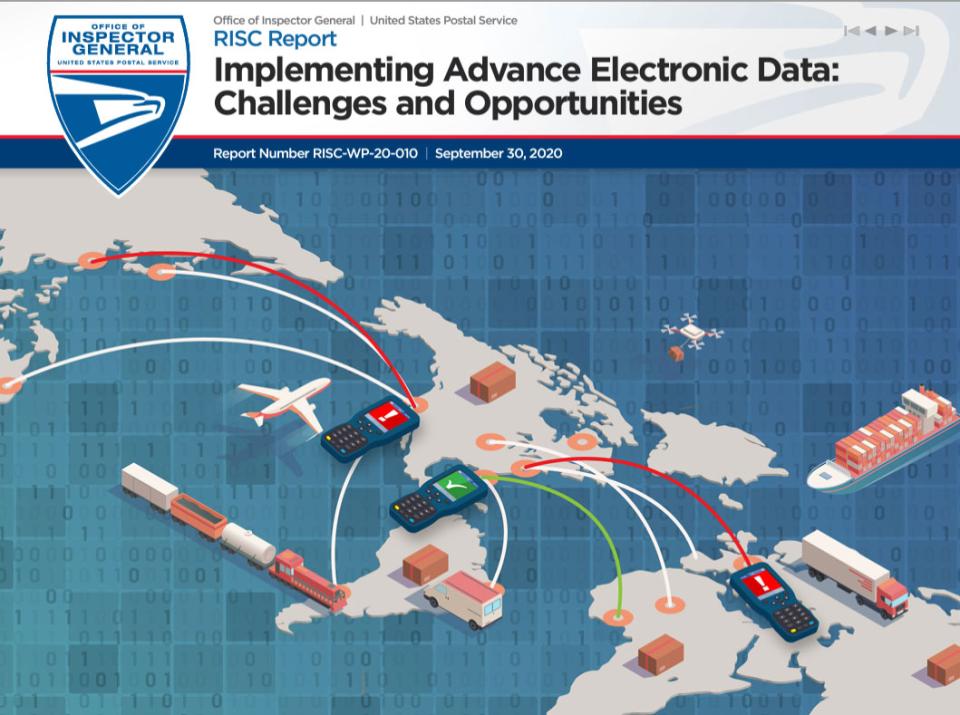Implementing Advanced Electronic Data: Challenges and Opportunities
September 30, 2020 (RISC-WP-20-010)
- Per the STOP Act, all postal packages shipped to the U.S. beginning January 1, 2021, must have Advance Electronic Data (AED) to help U.S. Customs and Border Protection (CBP) identify opioids in the mail.
- Not all cross-border packages will have AED by that date, owing to foreign posts’ limited capability to transmit data to the Postal Service.
- The issuance of AED regulations, collaboration between USPS and foreign posts, and effective incentives and penalties should enable increased compliance with the STOP Act.
Advance Electronic Data (AED) refers to electronic messages with information about the shipper, the recipient, and the contents of a cross-border postal package. AED helps U.S. Customs and Border Protection (CBP) identify packages from foreign posts that may contain opioids and other illicit goods. Under the STOP Act of 2018, all incoming postal packages must have AED by January 1, 2021. To provide AED, USPS relies on foreign posts’ capability to digitize and transmit data from shippers’ customs declaration forms.
The OIG found that the Postal Service will not be able to fully meet the STOP Act requirement to provide Advance Electronic Data (AED) on all incoming packages as from January 1, 2021. The absence of AED regulations, including a definition of compliance, limits the Postal Service’s ability to prepare for STOP Act implementation. Collaboration among posts, compliance incentives, and penalties could be key success factors.
JP Ducasse, Bryant Switzky, Emily Bowen, Jeff Colvin, and Christopher Backley contributed to this report.


